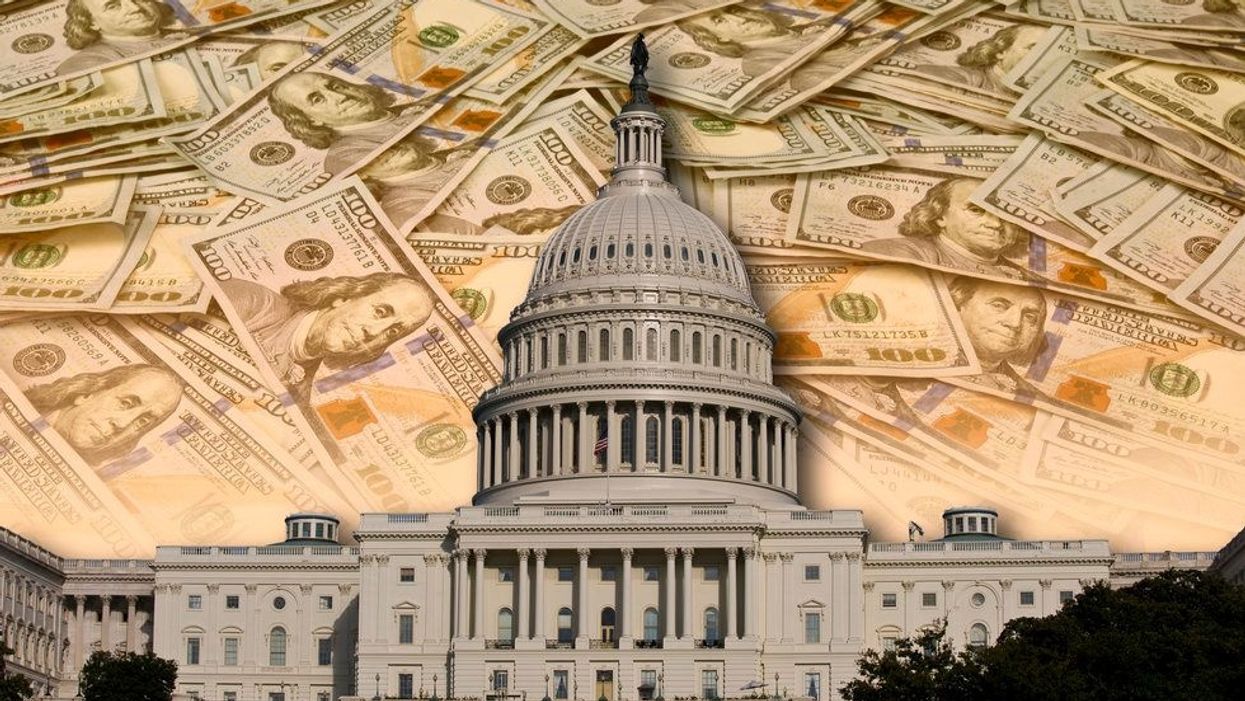Nye is president of the nonprofit and nonpartisan Center for the Study of the Presidency and Congress. He was a Democratic member of the House from Virginia from 2009 to 2011.
Americans' lack of faith in our political institutions is a deeply troubling challenge to the success of our democracy and serves as an undercurrent in American politics, overshadowing and poisoning our ability to process every other question in Washington. Left unaddressed, this disillusionment will continue to cause serious disruption to all efforts to move our country forward.
While not the hottest topic driving the daily media dramatics, solving this crisis of faith by reforming the corrupted elements of our politics is the best way to get our country back on track.
American voters understand the real problem. A recent Georgetown University poll found super-majorities wanting leaders to stand up for their values, but also expect that compromise and common ground should be their goal. It is reasonable to expect political leaders will be able to express strong values but also cooperate enough to do the basics of governing such as pass a budget on time and avoid government shutdowns. It is unsurprising then that a Congress that consistently fails to do this, as yet another potential shutdown looms, enjoys only a dismal 18 percent approval rating. That profound lack of faith has consequences. In the same poll, 90 percent expressed exhaustion with "politicians in Washington who work with powerful special interests instead of standing up to them." A system awash with campaign cash and unfettered access by moneyed interest drives a deep and destructive derision among the citizens. The story of a payday lender bragging about bought access to the White House doesn't help. Politicians' relentless efforts, on both sides, to rig electoral maps to their partisan advantage only further deepens the mistrust.
Systemic disgust makes every other political process suspect. While the current impeachment drama provides a useful example of the exercise of congressional responsibility to practice oversight on the most troubling presidential behavior, relentless political and media focus on impeachment suggests that the biggest problems confronting our republic boil down to the actions of one individual — that somehow the question of removing or replacing that one person is the key question at hand. It feels like something is missing in that debate, a focus on the larger issue of systemic corruption that has riled the American electorate for many years and put our politics on this seemingly inescapable downward spiral. It is difficult to see the current process resulting in a definitive outcome because it is a case of one mistrusted institution trying to assert a sadly non-existent moral authority over the other.
The Democratic presidential debates also seem to be focused on varying approaches to legislative issue policies that will require some unlikely consensus in Congress to enact. Again, the conversation seems grounded in the assumption that a body deemed dysfunctional by the American people will rise to America's challenges given the right presidential stewardship, a notion which feels disconnected from the current lack of faith in both of these institutions. There is, of course, room for presidential leadership to improve the dynamic. But a successful challenger to President Trump would need to both convince Americans that Trump is part of the same systemic corruption they have always disdained, and present a vision of a reformed system that could restore faith in our institutions. That means a significant focus on electoral system reform and a serious change to the relationship between money and political power.
Trump campaigned successfully on voter anger against a broken and corrupted system. By many measures, his approach has made voter faith in that system worse. In order to restore faith, one would need a specific vision for a convincingly game-changing better way.
One idea would be a ban on federal politicians accepting any campaign contributions until they completed the annual budget and appropriations for the coming year. That would end shutdowns forever and create a "quiet time" for governing and allocating resources, free from the corrupting influences of fundraising calls and events.
There are many other worthwhile ideas for reform, including ending gerrymandering, realigning incentives for compromise and increasing fundraising transparency, but there is an urgent need to restore American faith in our political system by enacting real reforms.
It's high time to fix the system.




















Trump & Hegseth gave Mark Kelly a huge 2028 gift